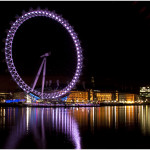Moving to London from US
So you’ve decided to cross the pond and move to the vibrant and historic city of London. You have a long road ahead of you, with employment to find, work visas to sort out, accommodation to source and assimilation into a completely new culture, but if you’re determined and patient in your approach you could soon be living in the capital of England. Perhaps one day, you might even decide to become a British citizen.
Eligibility for Stay in the UK
In common with other countries, to stay in the UK, either as a tourist or to work, you will need a visa.
If you are looking to explore London before making a firm commitment, you should apply for a Tourist Visa no later than three months before you intend to travel. According to the official government site, a decision should be made within three weeks. A visa will cost around $140 and you will be entitled to no more than six months stay, although you can look into a long-term visa if you foresee making several trips.
As part of the visa application you will need to demonstrate that you can survive on your own funds (since you will not be eligible to receive any public funds) and that you have a return ticket. Some of the things you will not be allowed to do on a tourist visa are work (even unpaid), marry or give notice that you intend to marry.
If you want to work in London, you can’t just apply for a work visa and start looking for a job unless you fall into one of the exclusive Tier 1 categories (investor, exceptional talent or entrepreneur). To qualify for a Tier 2 work visa you will need a Certificate of Sponsorship from a UK employer. Alternatively, if you work for a US company which has offices in London, you can be transferred via an intra-company transfer but only if the UK branch can prove there is no suitable local candidate. An intra-company transfer can be short-term (less than 12 months), long-term or related to your ability to pass on or learn specialist skills. A work visa will set you back around $880.
Another route into work in London is to study in the capital. You will need to demonstrate you can support your studies and accommodation financially but you will be permitted to work for 20 hours a week in a job related to your area of study.
Finding Work in London
Considering the above, you will probably need to find work before moving to London. There are some good online job sites, for example Reed and Monster, which enable you to filter jobs by industry, location, salary etc. It is worth stressing that sponsoring a US citizen to work in London is a time-consuming and involved process that will involve plenty of form-filling and collaboration between UK and US government departments. Therefore, you will have to work especially hard to convince a prospective employer that they should go down this route – and it is likely to be a long route. There are, however, specialist expat recruitment agencies to help pair candidates with employers.
If you are in the UK on a Tourist Visa, you could collect information about prospective jobs by looking through classified ads and visiting Jobcentre Plus and recruitment agencies, although you will not be able to actually apply for any positions.
Sourcing Accommodation
Once you have a job lined up, the hard part is done. Finding accommodation in London will almost certainly be a much easier proposition although you will need to strike a fine balance between quality, rates and distance from your place of work or study. The London transport system is generally very convenient for most Londoners, with numerous tube, rail and bus stations connecting most parts of the city. Visit the Transport for London website for details about fares and journey times before narrowing down your search area. Oyster Cards will save you money on the tube (London Underground), while a Young Person’s Railcard or Senior Railcard will get you significant discounts on the overland trains if you meet the eligibility requirements.
Many expats decide to rent an apartment (usually termed a ‘flat’ in London), and sites like Find A Home and Loot are good resources for finding a property that meets your criteria. If you are willing to share with other tenants in a shared flat or bedsit, Flatshare.com will be useful. Before signing a tenancy agreement, find out if bills and council tac are included and ask to see the Gas Safe certificate to prove your gas system is safe.
While looking for permanent accommodation, many expats choose to stay in hostels for $15 to $35 a night.
A note on pets
If you intend to bring a pet into the UK, they will need a pet passport (arranged by your vet), a rabies vaccination and (dogs only) a tapeworm treatment. For more detailed guidance, see our moving to London with pets guide
Understanding the Countries of the UK
The constitutional history of the British Isles is very complex, and it is not surprising that US expats can become confused about when to talk about Britain, Great Britain, the UK and England.
Great Britain (or Britain) is the main isle of the British Isles and comprises the nation states of England, Scotland and Wales.
The United Kingdom is itself a separate country and was formed from a series of unions which first joined the then-kingdoms of Scotland and England and then that of Ireland (confined to Northern Ireland after the creation of the Irish Free State). At the time of writing, the UK is an abbreviation for the United Kingdom of England, Scotland and Northern Ireland. However, Scotland will be holding a referendum on independence in September 2014 so this title will no longer be accurate should the Scots vote in favour of independence.
The most important thing for an expat to understand is that Scotland, Wales and Northern Ireland are not part of England and you will cause great offence if you refer to their citizens as ‘English’. You will also need to be careful in Ireland, where people in the Irish Republic are neither English, British nor from the UK!








